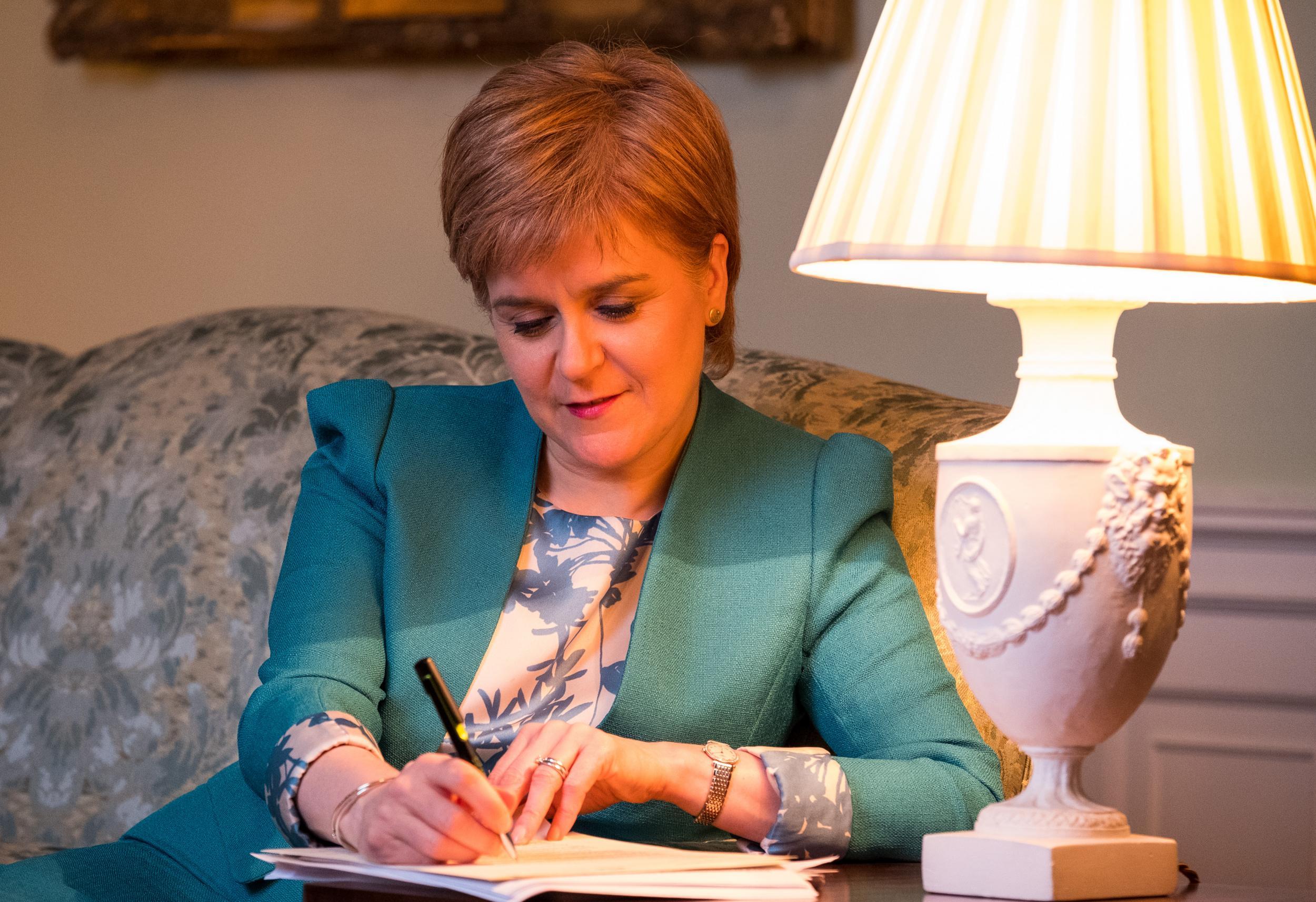Scotland rejoining EU would be 'relatively speedy', says senior German MEP
'If the political agreement would be there, then the process would be relatively speedy. Scotland is a member of the European Union and fulfils all of the conditions,' says CDU member Elmar Brok

The process of an independent Scotland re-joining the EU could be “relatively speedy”, according to a senior German MEP.
Elmar Brook, a member of Angela Merkel’s CDU party and best known for his former role as chairman of the European Parliament Committee on Foreign Affairs, said there would be few technical obstacles to overcome if the political will was there to allow it to happen.
It comes after Theresa May told the House of Commons last month that Scotland would be leaving the EU regardless of whether or not it was independent, despite the fact that the country voted by 62 per cent to 38 per cent for the UK to remain part of the bloc in the EU referendum.
Speaking to BBC Scotland, Mr Brok said the EU should have a "positive" relationship with Scotland to find solutions if it becomes independent, adding that he would be the “last one to be against” Scotland re-joining the EU if it breaks from the UK.
He said: “If there is a possibility that the United Kingdom breaks - which we do not hope - then I think we should have a positive relationship with Scotland to find solutions. We would like to have Britain as a whole in the European Union. If parts would come, I would be the last one who would be against it."
Mr Brok also suggested Europe's opposition to independence had softened as a result of the Brexit vote, but added that much would depend on the attitude of countries such as Spain.
He said: "If this is not approved by London then we have problems with other countries, because it would be an example for Catalonia [...] I do not know what Spain does".
Speaking at the weekend, however, Spain's foreign minister Alfonso Dastis confirmed his government would not veto any attempt from Scotland to join the EU after Brexit, although he stressed that he remained opposed to independence.
Mr Brok pointed out that all of the EU's laws have been fully implemented and already applied in Scotland, meaning the political agreement would already be there and there would “not be many technical problems”.
”So a lot of things which we have to negotiate with the candidate countries we have not to negotiate with Scotland because Scotland has already done it,” he said.
“If the political agreement would be there, then the process would be relatively speedy. Scotland is a member of the European union and fulfils all of the conditions. There will be not many technical problems.”
Mr Brok said Brexit meant there was now more sympathy for the idea of Scottish independence among the other 27 EU member states than there had been ahead of the 2014 referendum.
The MEP continued: “In 2014 it was a situation before Brexit and we do not want to harm the United Kingdom - that might have been a consideration in Spain.”
In pictures: European parliament Brexit discussions
Show all 12It comes after Lord Kerr, author of Article 50 and British ambassador to the EU 1990s, said arguments that an independent Scotland would be blocked in this way were “balls”, adding that Scotland’s entry would be a “very fast” negotiation – partly because it already has the EU’s legislation required to join.
Nicola Sturgeon said two weeks ago that an independent Scotland would seek full membership of the European Union and dismissed suggestions the country would have to join the back of the queue.
Scotland’s First Minister also said she was willing to have “reasonable discussions” with Theresa May over the timing of a new plebiscite, but warned it would not be determined by what is convenient for Downing Street.
Subscribe to Independent Premium to bookmark this article
Want to bookmark your favourite articles and stories to read or reference later? Start your Independent Premium subscription today.

Join our commenting forum
Join thought-provoking conversations, follow other Independent readers and see their replies